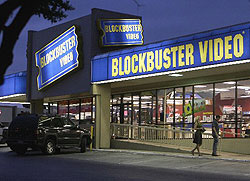


Web Reaches 100 Million Sites There may be a reason. Netcraft, an Internet monitoring company that has tracked Web growth since 1995, says a mammoth milestone was reached during the month of October. "There are now 100 million Web sites with domain names and content on them," said Netcraft's Rich Miller. "Within that, there are some that are busy and updated more often, and that represents the active sites, which are at about 47 or 48 million," he said. Bloggers, small businesses, and simplicity have combined to create the dramatic growth of sites, much of it just in the past two years. "The bottom line is it's much easier to create a Web site nowadays, and it's much easier to make money with a Web site," said Miller. Netcraft uses the domain name system to identify Web sites, check how many of them are in a particular location, such as what operating system and Web server software they're running, and then publishes its information in a monthly report. There were just 18,000 Web sites when Netcraft, based in Bath, England, began keeping track in August of 1995. It took until May of 2004 to reach the 50 million milestone; then only 30 more months to hit 100 million, late in the month of October 2006. Netcraft says the United States, Germany, China, South Korea and Japan show the greatest Web site growing spurts. Today there are seemingly endless Web sites for shopping, social networking, and, of course, sleaze. But what was the subject of Web site number one in 1989? "When the Web was started, it was started as a mechanism for sharing high energy particle physics data," said Professor Rebecca Grinter of Georgia Tech's College of Computing. The creator of that Web site, Tim Berners-Lee, wanted experts to be able to share data on particle smashing, even if they weren't at CERN in Switzerland where he was doing research. CERN, in Geneva, is the European Organization for Nuclear Research. Research facilities and universities soon started seeing benefits of this new tool for things as lofty as nuclear physics and as mundane as sharing restaurant recommendations. Even today CERN proudly proclaims on its home page, "The world's largest particle physics laboratory, where the Web was born!" It did not take long for this technological baby to flourish. |
Blockbuster Launches New Service Blockbuster Inc. launched a new service Wednesday that lets its online customers return their DVDs through the mail or at its stores. Under the new plan, called Blockbuster Total Access, monthly subscribers can return a DVD rented online to one of its 5,000 participating stores and rent another movie on the spot at no extra charge. By merging its brick-and-mortar stores with its online rental service, Blockbuster hopes to give itself an edge over rival Netflix Inc. which has been steadily gaining market share. While most people still rent movies in stores, online services and movie downloads are accelerating. "Customers shouldn't have to choose between renting online vs. in-store, and they should never have to be without a movie,” said John Antioco, Blockbuster chairman and chief executive. Now, “they don't have to," he said. Mr. Antioco has talked about merging the two rental options for some time. The chain has been testing in-store returns of online rented DVDs in Colorado for several months. Blockbuster said it’s automatically upgrading all current and new online customers as of today. Sales associates have online wireless access and will be offering customers the option to sign up in the store. That should help Blockbuster Online get to its 2 million online subscriber goal by year-end.
|
Today................ Click Here
Sports................ Click Here
Entertainment... Click Here
Business/Tech.. Click Here
ESPN.com.... Click Here
E!Online....... Click Here
CNET.com... Click Here

